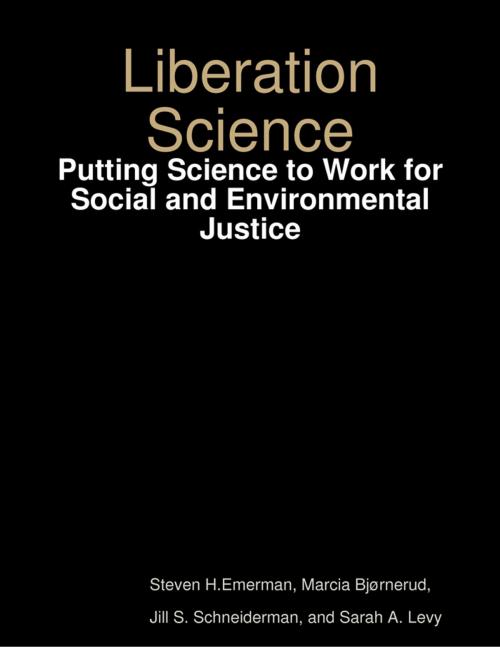Liberation Science: Putting Science to Work for Social and Environmental Justice
Nonfiction, Science & Nature, Science| Author: | Steven H. Emerman, Marcia Bjørnerud, Jill S. Schneiderman, Sarah A. Levy | ISBN: | 9781300424550 |
| Publisher: | Lulu.com | Publication: | December 2, 2012 |
| Imprint: | Lulu.com | Language: | English |
| Author: | Steven H. Emerman, Marcia Bjørnerud, Jill S. Schneiderman, Sarah A. Levy |
| ISBN: | 9781300424550 |
| Publisher: | Lulu.com |
| Publication: | December 2, 2012 |
| Imprint: | Lulu.com |
| Language: | English |
Liberation Science is the practice of using the knowledge and methods of science to solve the social and environmental problems faced by the poor. Liberation Science can address these problems because it has been freed from the flawed scientific paradigms that are linked to the flawed social paradigms of nationalism and capitalism. Three themes of Liberation Science are: 1) The definition of an ecosystem becomes both more expansive and more holistic to include humans, cultural practices, and the built environment, together with the possibility that an ecosystem could mimic the behavior of a single organism. 2) The logic and methods of science are made available to ordinary people, empowering them to understand the ecologies of their own communities. 3) Science becomes open to complementary philosophical approaches that draw upon cultural and spiritual traditions of particular regions or communities.
Liberation Science is the practice of using the knowledge and methods of science to solve the social and environmental problems faced by the poor. Liberation Science can address these problems because it has been freed from the flawed scientific paradigms that are linked to the flawed social paradigms of nationalism and capitalism. Three themes of Liberation Science are: 1) The definition of an ecosystem becomes both more expansive and more holistic to include humans, cultural practices, and the built environment, together with the possibility that an ecosystem could mimic the behavior of a single organism. 2) The logic and methods of science are made available to ordinary people, empowering them to understand the ecologies of their own communities. 3) Science becomes open to complementary philosophical approaches that draw upon cultural and spiritual traditions of particular regions or communities.















